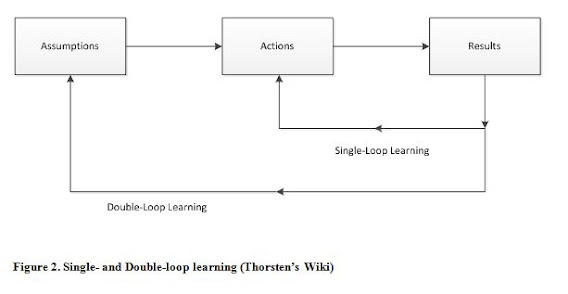#6 Learning Loop
Recently one of the highlights has been learning content through online mediums and finding effective ways to do so. Here's an interesting concept I came across recently called the Learning Loop.
The Learning Loop is based on the idea that to accelerate learning it needs to be implemented in our day to day life. It’s easier to learn things from actual experiences that run in a loop than the basic conceptual understanding.
A great part of this is based on taking reflections and feedback from yourself. When something less or more effectual happens, a concise reflection increases the quality of the learning and impacts how long it sticks with you.
While discussing this concept in an article, Shane Parrish, the founder of Farnam Street writes,
“Think about a clock: at twelve o’clock on the dial, you have an experience. At three o’clock, you reflect upon that experience. At six, that reflection creates an abstraction—a mental model—and at nine, you go on to take action based on that. Draw little arrows between them, and you can visualize this loop of learning. Mostly we skip the reflection part. We just want to get to the point. We want the answer so we gloss over the experience and the reflection to get to the abstraction, which answers the question what should we do.”
This is usually where a problem arises, it’s the difference between Single and Double-loop learning method. The practitioners of Single-Loop Learning follow a short-term approach. It’s meant for learning things, getting the result and hopping onto the action associated with it. The problems and their solutions here are too close to each other.
The Double-Loop Learning often follows a longer line of action but is more effective. The key features of this organizational system involves assumptions and self-awareness. In the Double-Loop Learning, making assumptions about the material helps to incorporate it in an established manner.
While having a solitary loop does work but transitioning it out into actual learning is based on multiple loops of repetition and reflection than just consuming information for the result.
Asking questions like “What are the patterns?”, “What are the details?”, “What did work and what didn’t?”, “What do I need to do in order to keep moving forward?” and answering them helps to increase the clarity of the abstractions in our mind. Usually, consuming content alone isn’t enough, a dedicated learning loop if required for effective learning. That’s all I wrote for this issue. I hope you learnt something new. :)



